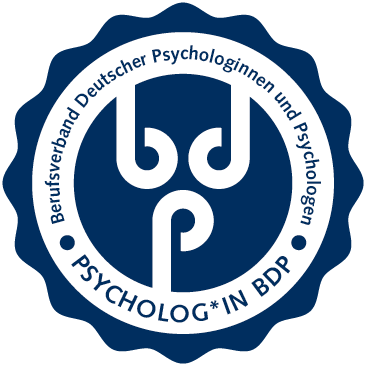


Patric Pförtner
M.Sc. Psychologe, PhD Candidate
Do you ever feel like you can't switch off from work? Does your mind constantly race with thoughts about deadlines, projects, or emails? Maybe these worries lead to physical signs like feeling on edge, having trouble sleeping, or neglecting other areas of your life. If this sounds familiar, it could be a sign of workaholism.
Workaholism isn't just about dedication; it's when work becomes a central focus that disrupts your well-being and relationships.
Here are some common signs to consider:
Please be aware that a talk with a therapist or other mental health professional can help you understand these signs and develop strategies to manage them.
This test here isn't a diagnostic tool, but if you experience several of these signs frequently and they disrupt your daily life, it's important to seek professional help. Be aware about the risks, too:
Long working hours led to 745 000 deaths from stroke and ischemic heart disease in 2016, a 29 per cent increase since 2000 according to the estimates by the World Health Organization (2021).
If you believe you may suffer from Workaholism, you should consult a psychotherapist.
Do you ever feel constantly pulled towards work, even when you're not on the clock? If these questions resonate with you, this self-assessment can be a helpful starting point.
This online self-assessment can give you some insight into whether your work habits might be indicative of workaholism. It's important to remember, this isn't a diagnosis, but it can help you decide if seeking professional guidance might be beneficial.
A therapist or counselor can offer support in developing a healthier work-life balance and managing any underlying issues that might be contributing to your workaholism.
It's important to remember that this self-assessment is not a diagnostic tool. It can't determine whether you have workaholism or not.
However, this assessment can be a valuable tool for self-reflection. By answering the questions honestly, you can gain insight into your work habits and identify areas you might want to explore further. Additionally, you can track any changes in your behavior over time.
If you find the results concerning, or if you feel your work habits are negatively impacting your life, consider seeking professional guidance from a therapist or counselor.
All questions refer to the last 14 days. The answer options are graded on a scoring system, where the first answer option is one point and the last is five points. Enter your ratings next to each question and click the "Evaluate" button at the end.
1. I often view relaxing activities like reading or enjoying a meal as a waste of time.
2. I often find myself thinking about work even when I'm not working.
3. Would your colleagues say that you appear to be constantly rushing or working against the clock?
4. I sometimes work for multiple days and nights in a row, forgetting to sleep.
5. I only find time for my hobbies when all work is done, which rarely happens.
6. I feel restless when I'm not working.
7. I feel most comfortable in my workplace.
8. I spend more time working than I do with my family or friends.
9. I feel like I have no energy without work.
10. My weekly working hours regularly exceed 40 hours by a significant margin.
11. I feel like I have no joy in life without work.
12. I work to avoid negative emotions like guilt or anxiety.
13. I expect myself to do my work perfectly and always deliver my best performance.
14. Do you often feel guilty when you take time for yourself?
15. I feel like I have no control over my life without work.
16. Neither fatigue nor physical pain prevents me from working.
17. I feel like I have no purpose in life without work.
18. I cannot understand people who are not passionate about their work.
19. I feel like I have no identity without work.
20. I feel like I have no success without work.
21. As long as I enjoy working, I see no problem with working a lot.
22. I feel like I have no motivation without work.
23. I feel like I am worthless without work.
24. I am also available to the company on weekends and holidays.
25. I answer to work emails even outside our opening hours.
26. I often bring work home to finish it perfectly.
27. I am always the last one to leave the office and work significantly longer than my colleagues.
28. I find it difficult to delegate tasks to colleagues or ask for their support.
29. I rarely take time for a lunch break at work.
30. I am not going to the office only if I am seriously ill.
This online screening is not a diagnostic tool. Only a trained medical professional, such as a doctor or a psychiatrist or psychotherapist, can help you with the next steps.
While this isn't a diagnostic tool, the questions can be a valuable springboard for reflection and potential future discussions.
For example, imagine your top 3 questions were:
By reflecting on the questions that resonated with you most, you can prepare for a productive conversation with a therapist or counselor. Discussing these areas can help them understand your work habits and their impact on your life. This information can be instrumental in developing a personalized plan to achieve a healthier work-life balance.

Copyright © Patric Pförtner 2025
Website made by WebWizr.eu

Important Links
Important Information
All rights reserved. Our website services, content, and products are for informational purposes only. Betterpsychologist.com does not provide medical advice, diagnosis, or treatment.